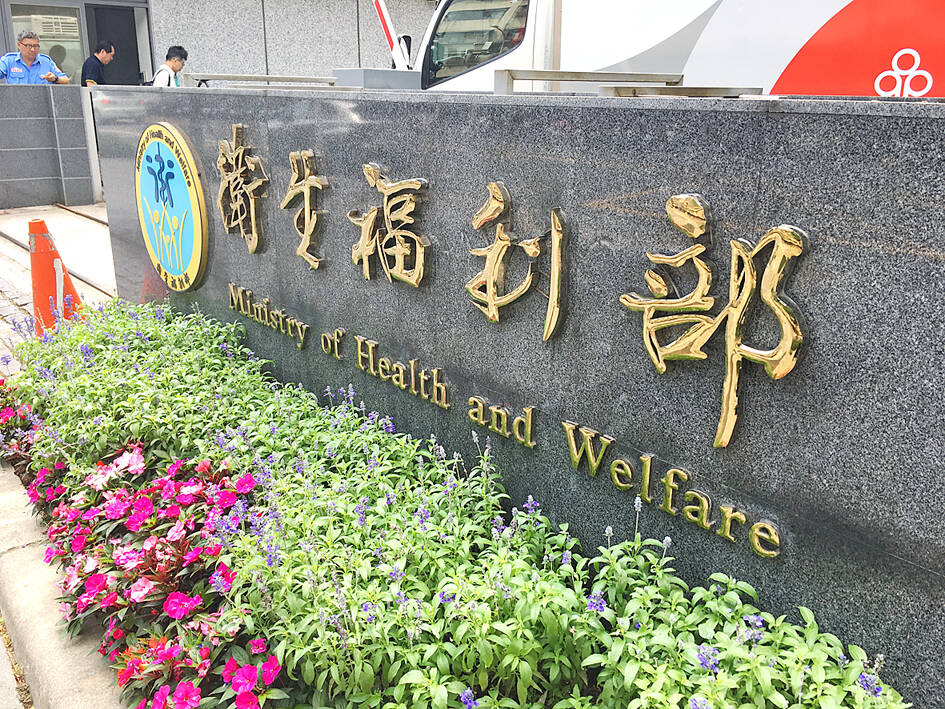Subsidy programs would to be expanded for 74 townships that still need long-term healthcare facilities for elderly people, with the goal of increasing elderly care capacity by 6,500 beds by 2027, the Ministry of Health and Welfare said on Aug. 24.
The ministry has allocated a NT$10 billion (US$313,86 million) budget for the project, Long-term Healthcare Department deputy director Wu Hsi-wen (吳希文) said.
The ministry’s past subsidy programs focused on providing areas devoid of long-term healthcare facilities for elderly people with governmental establishments, Wu said.

Photo: Lin Hui-chin, Taipei Times
The difference with this particular subsidy program is that it is not exclusive to local government agencies, she said.
Natural or legal persons established by public or private enterprises — even private schools with nursing or long-term health care education — can apply for the subsidy, Wu said.
The subsidy amount depends on the applicant, with government or government-private collaborations being eligible to receive up to NT$2.1 million per individual, and facilities specially established to house or care for people with dementia are eligible to receive up to NT$2.2 million, she said.
Private establishments with housing facilities can apply for up to NT$1.5 million per individual in subsidies, while facilities caring for people with dementia can apply for up to NT$1.6 million, she added.
A government agency establishing a facility that can house 200 individuals and care for people with dementia can apply for up to NT$440 million in subsidies, she said.
Subsidized facilities would need to reserve 10 percent of their capacity to receive individual cases sponsored or paid for by local governments, Wu said, adding that the subsidy program aims to augment the social welfare side of the industry.
Subsidies are open for applications starting from this month, with the second phase planned to start in November, she said.
Taiwan currently has 115,000 beds dedicated to long-term health care, and the department hopes the program would promote the establishment of more premium-grade caretaking facilities closer to elderly people in need, she said.

The Chinese military has built landing bridge ships designed to expand its amphibious options for a potential assault on Taiwan, but their combat effectiveness is limited due to their high vulnerability, a defense expert said in an analysis published on Monday. Shen Ming-shih (沈明室), a research fellow at the Institute for National Defense and Security Research, said that the deployment of such vessels as part of the Chinese People’s Liberation Army (PLA) Navy’s East Sea Fleet signals a strong focus on Taiwan. However, the ships are highly vulnerable to precision strikes, which means they could be destroyed before they achieve their intended

The first two F-16V Bock 70 jets purchased from the US are expected to arrive in Taiwan around Double Ten National Day, which is on Oct. 10, a military source said yesterday. Of the 66 F-16V Block 70 jets purchased from the US, the first completed production in March, the source said, adding that since then three jets have been produced per month. Although there were reports of engine defects, the issue has been resolved, they said. After the jets arrive in Taiwan, they must first pass testing by the air force before they would officially become Taiwan’s property, they said. The air force

GLOBAL: Although Matsu has limited capacity for large numbers of domestic tourists, it would be a great high-end destination for international travelers, an official said Lienchiang County’s (Matsu) unique landscape and Cold War history give it great potential to be marketed as a destination for international travelers, Tourism Administration Director General Chen Yu-hsiu (陳玉秀) said at the weekend. Tourism officials traveled to the outlying island for the Matsu Biennial, an art festival that started on Friday to celebrate Matsu’s culture, history and landscape. Travelers to Matsu, which lies about 190km northwest of Taipei, must fly or take the state-run New Taima passenger ship. However, flights are often canceled during fog season from April to June. Chen spoke about her vision to promote Matsu as a tourist attraction in

PAWSITIVE IMPACT: A shop owner said that while he adopted cats to take care of rodents, they have also attracted younger visitors who also buy his dried goods In Taipei’s Dadaocheng (大稻埕), cats lounging in shops along Dihua Street do more than nap amid the scent of dried seafood. Many have become beloved fixtures who double as photography models, attracting visitors and helping boost sales in one of the capital’s most historic quarters. A recent photo contest featuring more than a dozen shop cats drew more than 2,200 submissions, turning everyday cat-spotting into a friendly competition that attracted amateur and professional photographers. “It’s rare to see cats standing, so when it suddenly did, it felt like a lucky cat,” said Sabrina Hsu (徐淳蔚), who won the NT$10,000 top prize in